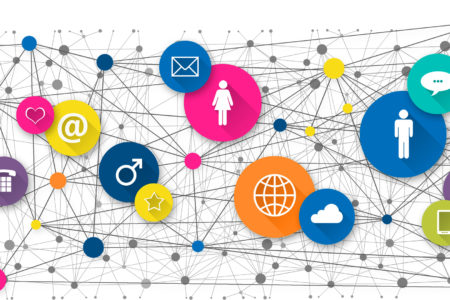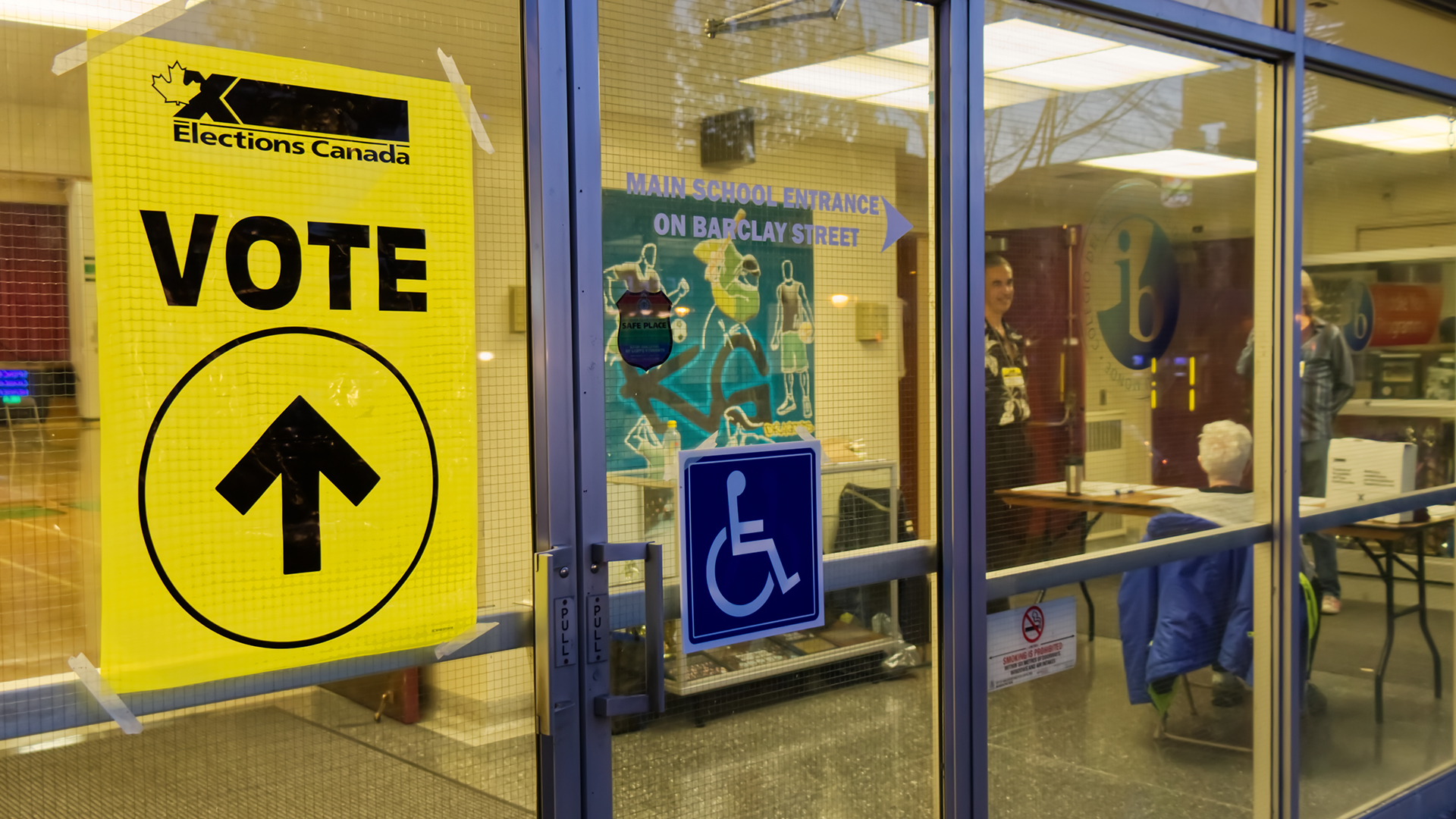
COVID-19 has instigated the most severe international health crisis since the Spanish influenza in 1917-18, and the worst global recession since the Great Depression in the 1930s. It has compelled many people to ask whether our labour markets, public health services and social welfare regimes can meet the challenges of the 21st century. Yet, the stresses imposed by the pandemic expose the resilience and quality of our democracies, too.
The last decade has witnessed a growing debate over the prospects of democracy around the world. Most scholars agree that a regressive turn has occurred in many regions, a phenomenon increasingly called “democratic backsliding.” Indeed, this is even true in the older representative democracies of the North Atlantic world, shocked by the rise of Donald Trump, advent of Brexit and resurgence of populism in general. Major surveys have indicated decreasing popular confidence in democratic government to provide effective governance, a greater willingness to elect strong executive leaders, and the rise of parties that represent “the people” at the expense of liberal values and minority rights.
In general, democratic backsliding reflects a deterioration in the norms, institutions and practices in three realms: moves to restrict the participation of citizens, organizations and parties in electoral processes and the public sphere; to reduce the competitiveness of elections and capacity of actors to contest for power; and to constrain the accountability of rulers to other power-holders and the governed.
Backsliding can assume many forms. However, it has increasingly manifested itself in three new ways. The first is a promissory coup that moves to oust an elected government, ostensibly to protect constitutional legality, with a promise to restore democracy as soon as possible. Another is executive aggrandizement. These are incremental moves by democratically elected leaders, who often invoke their popular mandate and take advantage of existing norms, rules and procedures, to weaken the capacity of state institutions and civil society to check the executive. The third is strategic electoral manipulation: efforts to limit civic participation, harass political opponents and manipulate electoral processes, often pursued legally, before voting actually takes place.
In aggregate terms, the pandemic has exacerbated democratic backsliding in most regions of the world. The democracy index of the Economist Intelligence Unit recorded a global score of 5.37 out of 10 in 2020, its lowest measure since the organization began tracking the quality of governance in the world in 2006. Similarly, Freedom House reported that its global index of civil liberties and political rights had declined for the 15th consecutive year. Of the 195 countries studied, almost thrice as many witnessed setbacks versus advances. Today, more than 50 countries, representing 38 per cent of the world’s population, live in autocracies – the highest share since 2006.
Tellingly, the three most important drivers of these patterns engender democratic backsliding generally.
First, government-imposed restrictions on civil liberties, “the biggest rollback ever undertaken by governments in peacetime,” were the most important determinants. Compulsory social distancing, curfews and lockdowns, along with border closures and international travel bans, greatly limited freedom of movement. Unsurprisingly, autocratic regimes imposed such restrictions with greater force, expediency and duration. Public objections have met with greater political harassment, security crackdowns and the criminalization of dissent. Growing media restrictions are by far the most frequently observed violation.
But striking the right balance between civil liberties and public safety – a genuine dilemma – has also challenged many democracies. Restrictions on privacy and the freedom of movement, assembly and expression have to be weighed against the right to life and security of the person as well as the precautionary principle that informs public health. The majority of citizens in western democracies supported temporary limits on basic freedoms at the outset of the pandemic.
Yet, public attitudes have differed across countries and fluctuated over time. Opponents believe attempts to impose compulsory mask-wearing and social distancing measures violate their freedom of expression and movement. Political rallies against public health measures in the United States are perhaps the most visible example. Yet, many other western democracies, from France and Germany to Switzerland, experienced similar protests. Opposition to mandatory vaccination campaigns and vaccine passports is the latest phase of this struggle.
Second, governments across the world concentrated executive power after the pandemic erupted, passing emergency legislation, centralizing residual powers and expediting public procurement processes. The exponential trajectory of the COVID virus required national governments to act boldly, quickly and prudently. Countries that failed to implement effective social distancing measures, to test, trace and treat the virus’ spread, and to vaccinate their populations have suffered higher rates of infection, hospitalization and mortality, and often had to impose more severe lockdowns.
Despite the popular goodwill shown to most incumbent leaders, however, the rapid concentration of executive power failed to guarantee effective governance. It was neither necessary nor sufficient to “bend the curve” or tackle the rapid economic crisis that unfolded. Moreover, in granting themselves extraordinary powers, many democratic governments undercut the normal system of checks and balances. Parliaments, legislative committees and other oversight bodies often had little time to scrutinize emergency legislation and executive orders. Public transparency has declined in most countries, making it harder for opposition parties and independent media to hold governments accountable. The centralization of power over the last 18 months raises serious questions about democratic accountability.
Finally, the pandemic constrained normal channels of political representation. According to the International Institute for Democracy and Electoral Assistance (International IDEA), almost 80 of the roughly 210 countries scheduled to hold elections between February 2020 and July 2021 postponed them. The official rationale – public safety – was appropriate.
But, deferring the key mechanism of political representation and accountability raised genuine concerns. Additionally, elected representatives lost opportunities to engage constituents in-person, precisely when the need for open public communication was greatest. Many community-based organizations either lost scarce resources or diverted them to emergency response measures, undermining their capacity to advocate on behalf of their constituents.
That said, civic participation increased in many countries. Approximately one-third of democracies that held elections saw an increase in turnout, from South Korea and the United States to New Zealand. Moreover, two-thirds of polls conducted in 2020 employed special voting arrangements, from early, postal and proxy voting to mobile ballot boxes and special arrangements in polling stations. Finally, protests against controversial pandemic-related measures increased, especially in large developing countries and autocratic regimes, demanding greater political voice, representation and accountability.
Where does Canada fit in this global post-pandemic landscape? We rank fifth in the world in The Economist’s democracy index. According to the Varieties of Democracy Project (V-Dem), Canada is one of only 14 countries whose response to the pandemic avoided illiberal policies (discriminatory measures, derogation of fundamental rights and abusive enforcement), authoritarian practices (non-time-bound emergency measures, limitations on the legislature and official disinformation campaigns) and curbs on the media.
Yet these global surveys, although revealing, rely on broad-gauge comparative indicators. Their respective findings should not encourage complacency. Three worrying trends stand out.
First, growing international disquiet over executive aggrandizement reflects longstanding concerns at home. Formally, our Westminster system of Parliament has several checks and balances. Yet the dominance of the Prime Minister’s Office in decision-making, of party leaders over members of Parliament (MPs), and of federal public agencies has grown during the pandemic.
During its early phase, the federal government passed major legislative amendments, emergency measures and orders-in-council to combat the crisis. However, in contrast to counterparts in Australia, Britain and New Zealand, the House of Commons and its committees sat less frequently, with fewer MPs in person. Indeed, the entire House only met virtually during twice-weekly sessions of a special committee on the pandemic, and its members lacked the power to vote electronically. The absence of a daily question period and the irregular attendance of the prime minister further diminished parliamentary scrutiny. True, the NDP and the Greens supported this arrangement. The Conservative opposition voted against the government’s original bid to spend, tax and borrow without parliamentary approval until December 2021. Nonetheless, these attempts to concentrate executive power limited political accountability. The decision to prorogue Parliament, in the wake of the WE Charity and SNC-Lavalin controversies, likely caused Canada to lose its top-10 rank in Transparency International’s corruption perceptions index.
Second, protecting civil liberties while ensuring public safety in a pandemic is a difficult balancing act. In comparative terms, Canada has handled these imperatives relatively well. Nonetheless, low-paid essential workers from racialized communities have unduly suffered in terms of hospitalization and mortality as well as loss of employment and income. Police enforcement of public health restrictions, from punitive fines to prison sentences, have disproportionately targeted marginalized communities, too.
Recent surveys indicate that partisan identities shape our willingness to get vaccinated and follow public health measures. NDP and Liberals supporters are more likely to do so than Conservatives. Our comparatively high rate of mass vaccination may diminish the importance of these differences. Yet growing partisan divergence in Canada may prove significant, given predictions of a fourth wave, reports that existing vaccines may lose their potency sooner than expected, and the 90 per cent threshold that public health experts believe is necessary to reach herd immunity.
Lastly, signs of social polarization, seen as relatively contained before the pandemic, have intensified in recent months. Incidents of anti-Asian discrimination, harassment and violence have risen during the pandemic in Canada, and are now higher per-capita than in the United States. The limited collection of systematic data on racial and ethnic identities likely understates the problem. Indigenous and racialized politicians, especially women, report that a toxic political culture in social media and our public institutions have led many of them to withdraw from politics at various levels. The hostile protests greeting Prime Minister Trudeau in this election campaign, laced with racism, sexism and xenophobia, reveal a disturbing aspect of our wider political culture that too many discount.
Few observers believe the rationale of the outgoing minority government, that it faced a dysfunctional Parliament, rather than a desire to exploit favorable polls earlier this summer. Yet, much is at stake. The next federal government faces tremendous choices. Tackling the persistent inequalities exposed by the pandemic in a fiscally sustainable manner, preventing catastrophic climate change and shaping a post-western international order are the most obvious imperatives. Yet, growing civic disengagement, social polarization and executive overreach will only make it harder to address the challenges we confront. High rankings in global surveys will not inoculate us from rising threats. The 2021 federal election provides an opportunity to buttress our democracy.
This article is part of the How can we improve the elections process special feature.









